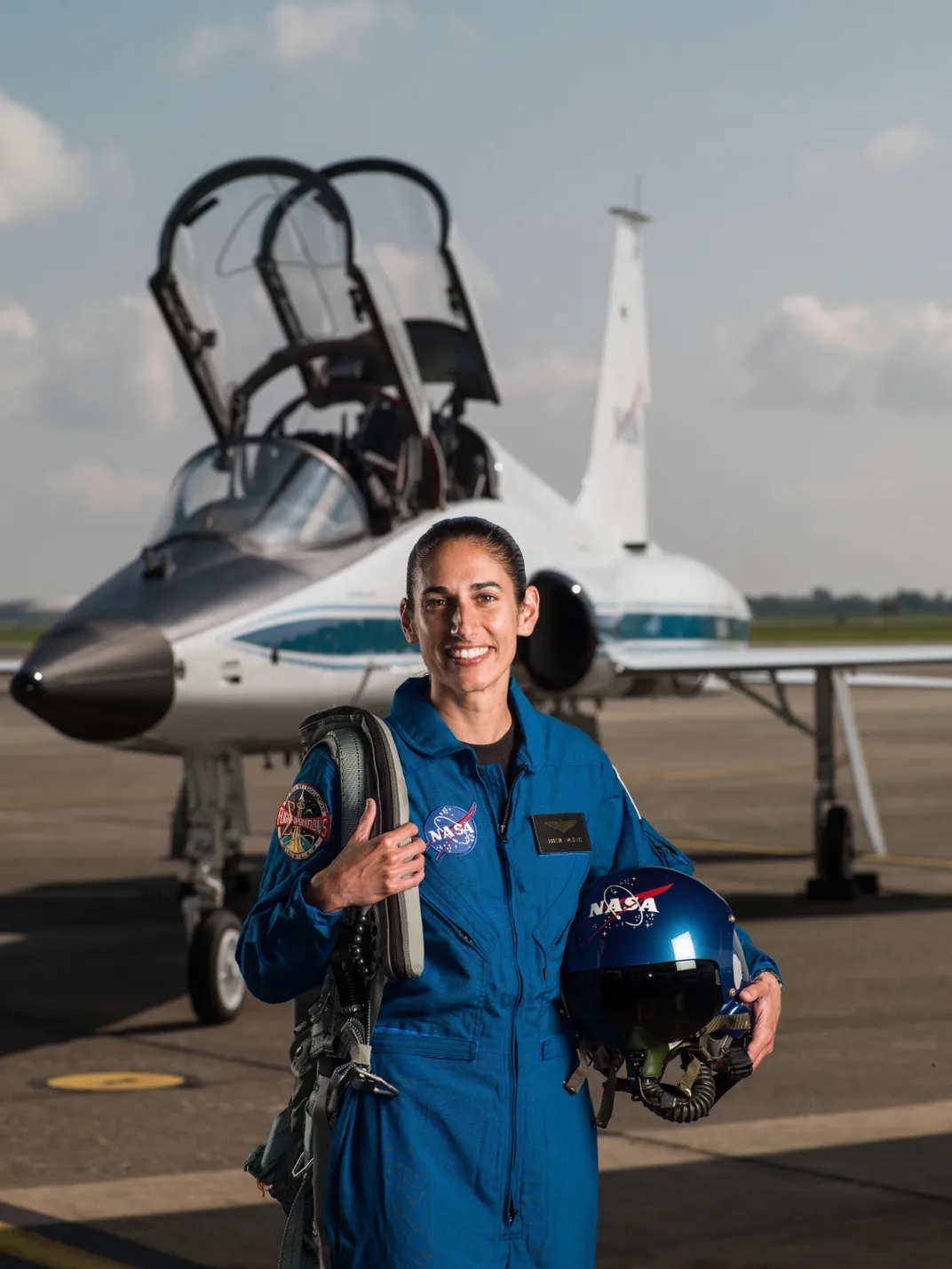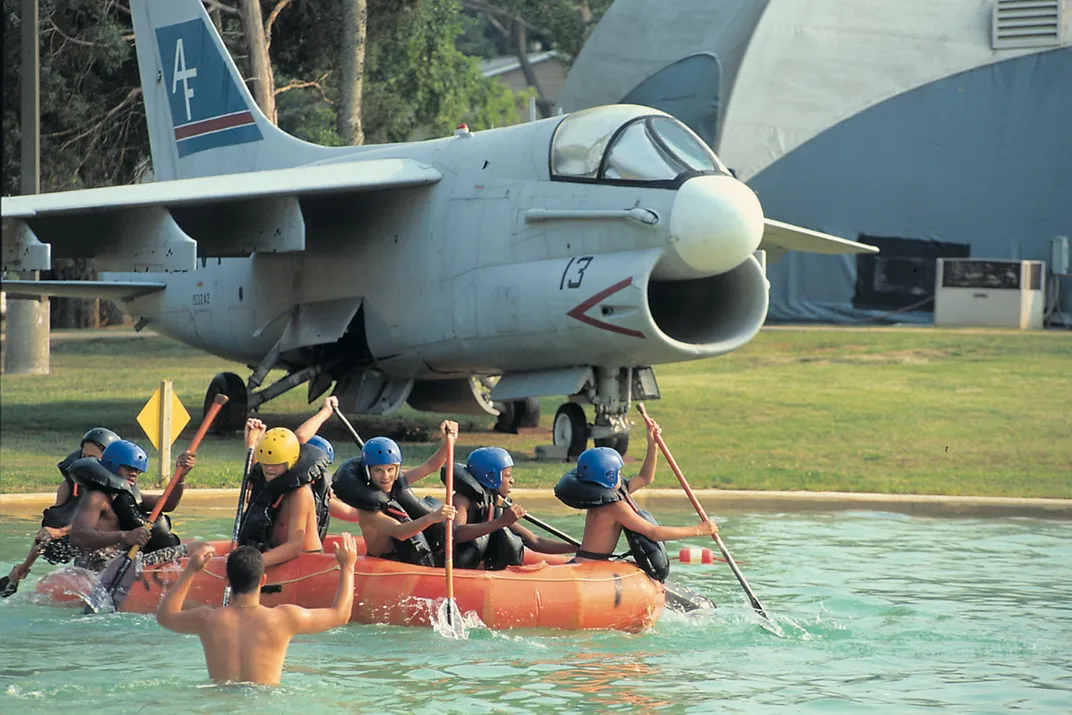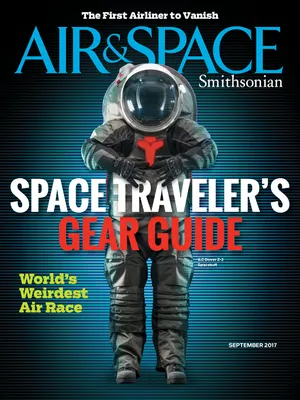Space Camp May Be Habit Forming
When camp is a career path.
/https://tf-cmsv2-smithsonianmag-media.s3.amazonaws.com/filer/bc/f0/bcf072ee-6453-4773-8bee-5cfdecd17f6d/01b_sep2017_saturnvhall3_live.jpg)
You could say that Zoe McElroy is a Space Camp expert. She’s been eight times. About to start her freshman year at Rensselaer Polytechnic Institute in Troy, New York, McElroy says she’s wanted to be an aerospace engineer since she was nine years old. That’s the year she first went to Space Camp. “I remember begging my mom on the plane ride home, ‘Can you send me back next summer?’ I loved everything about it,” she says. “I got to see all that engineering and meet all those amazing people. And I really knew that that’s what I wanted to do with my life.”
Located at the U.S. Space & Rocket Center in Huntsville, Alabama—the official visitor center for NASA’s Marshall Space Flight Center—Space Camp is now in its 35th year and has made a name for itself, not just around the country but around the world, as an inspirational as well as educational program. Among the 35,000 people who participate each year in the camp’s standard offering—a week-long program, in space technology, aviation, or robotics—are students from 70 countries. “We have about the same number of students from China as we have from Tennessee,” says CEO and executive director Deborah Barnhart.
And the camp has an extraordinary rate of recidivism. At a weekend event last summer, one alumnus reported having attended 19 sessions; another, 21.

Nicholas Schaefer, a junior at Loudoun County High School in Leesburg, Virginia, is also a serial camper. Last summer, he graduated from his sixth Aviation Challenge, a military-inspired program of flight simulators, water-survival training, and centrifuge rides. He keeps coming back, he says, because he values the “leadership training,” which he believes will help him land a spot at the Virginia Military Institute in Lexington and eventually as an officer in the Marine Corps.
Barnhart, a former Navy captain who calls her programs “thinly veiled workforce development,” says she wants students to know that the military is an excellent path for careers in technology.
“I would recommend Aviation Challenge programs to everybody,” says Schaefer, for “an opportunity to [try out] a leadership position in a safe environment where it’s okay to make mistakes.” This past summer, Schaefer attended a 12-day, invitation-only program, Aviation Challenge Mach III Elite. “That is not for everybody,” he says. “That’s for people willing to apply themselves and give 110 percent.” During Schaefer’s session, he coordinated three 10-person teams in a hostage rescue.
Both McElroy and Schaefer say they’ve learned about science and technology. McElroy learned how rockets work, and Schaefer can spit out a 9Line medevac request (a military protocol) like a combat veteran. But the real value of the camp seems to lie in the intangibles it teaches and the opportunity it offers students to role-play as their future selves—to try on for size the identities they think they want as adults.

And, like all camps, it is prized for the friendships it forms. “They’ve been through difficulties together,” says Barnhart. “On the space missions, we throw a lot of anomalies at them, and it’s tough. Many bond for life. We have students from the 1980s who are adult friends.” The program has also led to about 100 marriages.
“In Advanced Space Academy, you’re on a mission for 24 straight hours, and they keep throwing problems at you to solve. It is so stressful but so fun,” says McElroy. “I met my best friend at Space Camp and that was the only fight we’ve ever been in—over something that happened in that mission.”
Space Camp is for teachers too, and one of the intangibles that Wisconsin Teacher of the Year Ryan Fuhrman is taking home with him—in addition to “a notebook full of lesson plans and ideas”—is his realization of “the importance of diversity.” (Space Camp is one of the prizes awarded to every teacher selected by state school officers as a Teacher of the Year.) Fuhrman worked with an art teacher and a special ed teacher on one of the camp assignments: to design a heat shield to protect an egg from a five-minute blast with a blow torch. “I think like an engineer,” says the science teacher, “but I saw there were other ways to solve problems. When everybody is able to bring ideas, we get better solutions.”
Space Camp offers week-long programs 50 weeks of the year and also has single-day or weekend training. For more: spacecamp.com.
